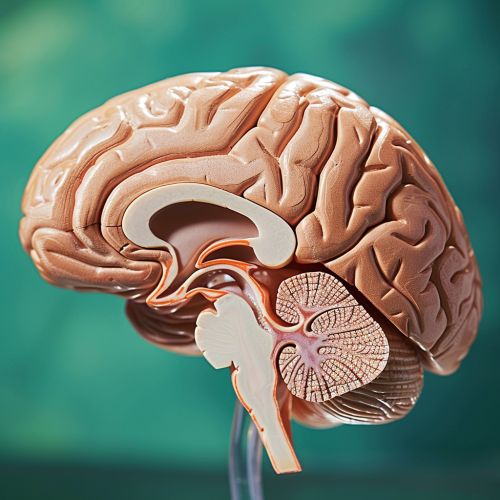Inhibitory Control
Definition and Overview
Inhibitory control refers to the cognitive process that allows an individual to inhibit their impulses and natural, automatic, or dominant behavioral responses to stimuli in order to select a more appropriate behavior that is consistent with completing their goals. It is a key component of executive functions, which are a set of cognitive processes that are necessary for the cognitive control of behavior.
Neuroanatomy of Inhibitory Control
Inhibitory control is associated with a specific network of brain regions. The primary structures involved are the prefrontal cortex, the basal ganglia, and the anterior cingulate cortex.


The prefrontal cortex is involved in high-level cognitive functions, including decision making, attention, and inhibitory control. The basal ganglia, a group of subcortical nuclei, play a crucial role in motor control, learning, and executive functions, including inhibitory control. The anterior cingulate cortex is involved in error detection and conflict monitoring, which are essential for effective inhibitory control.
Mechanisms of Inhibitory Control
Inhibitory control operates through several mechanisms, including interference control, cognitive inhibition, and behavioral inhibition. Interference control refers to the ability to ignore irrelevant information or suppress irrelevant responses. Cognitive inhibition refers to the ability to suppress irrelevant or distracting thoughts, while behavioral inhibition refers to the ability to suppress inappropriate motor responses.
Development of Inhibitory Control
Inhibitory control develops rapidly during early childhood and continues to mature into early adulthood. This development is closely linked with the maturation of the prefrontal cortex and other brain regions associated with executive functions.
Role in Psychopathology
Impairments in inhibitory control have been implicated in a range of psychological disorders, including Attention Deficit Hyperactivity Disorder (ADHD), Obsessive-Compulsive Disorder (OCD), and Substance Use Disorders. In these disorders, individuals often struggle to inhibit inappropriate or maladaptive behaviors.
Assessment of Inhibitory Control
Inhibitory control can be assessed using a variety of neuropsychological tests, such as the Stroop Test, the Go/No-Go Task, and the Stop-Signal Task. These tests measure the ability to inhibit automatic or prepotent responses.
